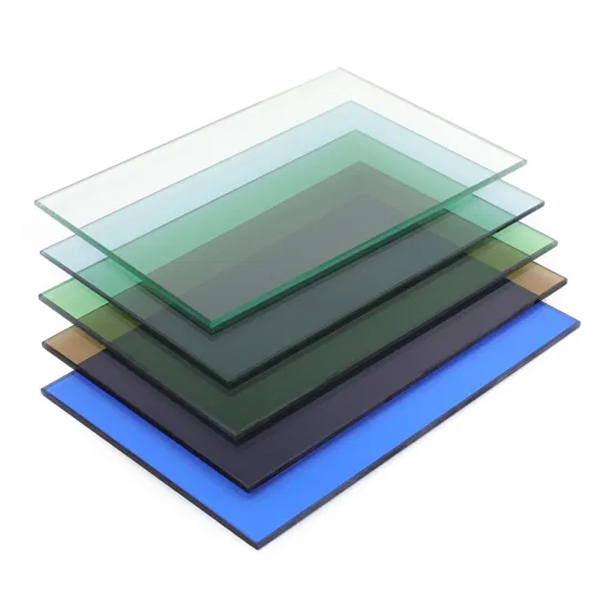Tinted glass is glass that has been treated with a colorant during its manufacturing process to achieve a desired hue or shade. The tinting process involves adding metal oxides or other compounds to the glass mixture before it is formed, resulting in glass with a uniform color throughout its thickness.
Tinted glass offers several benefits:
- Solar Control: Tinted glass can help reduce the amount of solar radiation and heat entering a building, making it more energy-efficient by reducing the need for air conditioning.
- Glare Reduction: Tinted glass can also help reduce glare from sunlight, improving visibility and comfort indoors, especially in areas with bright sunlight.
- Privacy: Tinted glass can provide privacy by obscuring the view from the outside while still allowing light to pass through. This is often used in residential and commercial settings where privacy is desired.
- Aesthetic Enhancement: Tinted glass can add visual interest and enhance the appearance of buildings, vehicles, and other applications. It is available in a variety of colors and shades to suit different design preferences.
Tinted glass is commonly used in architectural applications such as windows, doors, and facades, as well as in automotive windows and glass panels for electronics and appliances. It is important to note that the degree of tinting can vary, ranging from lightly tinted to heavily tinted, depending on the desired level of light transmission and solar control.

Ready to Build with Glass? Start Your Project Today.
Discover professional processing and toughened glass solutions tailored for your needs.
Get a Free Quote Today!
